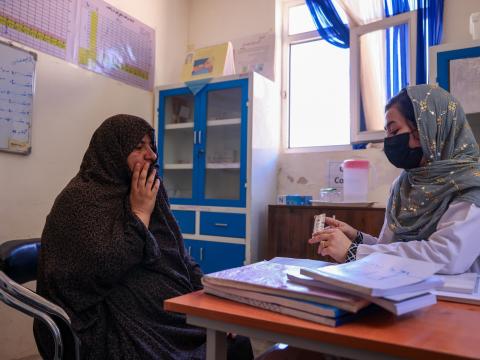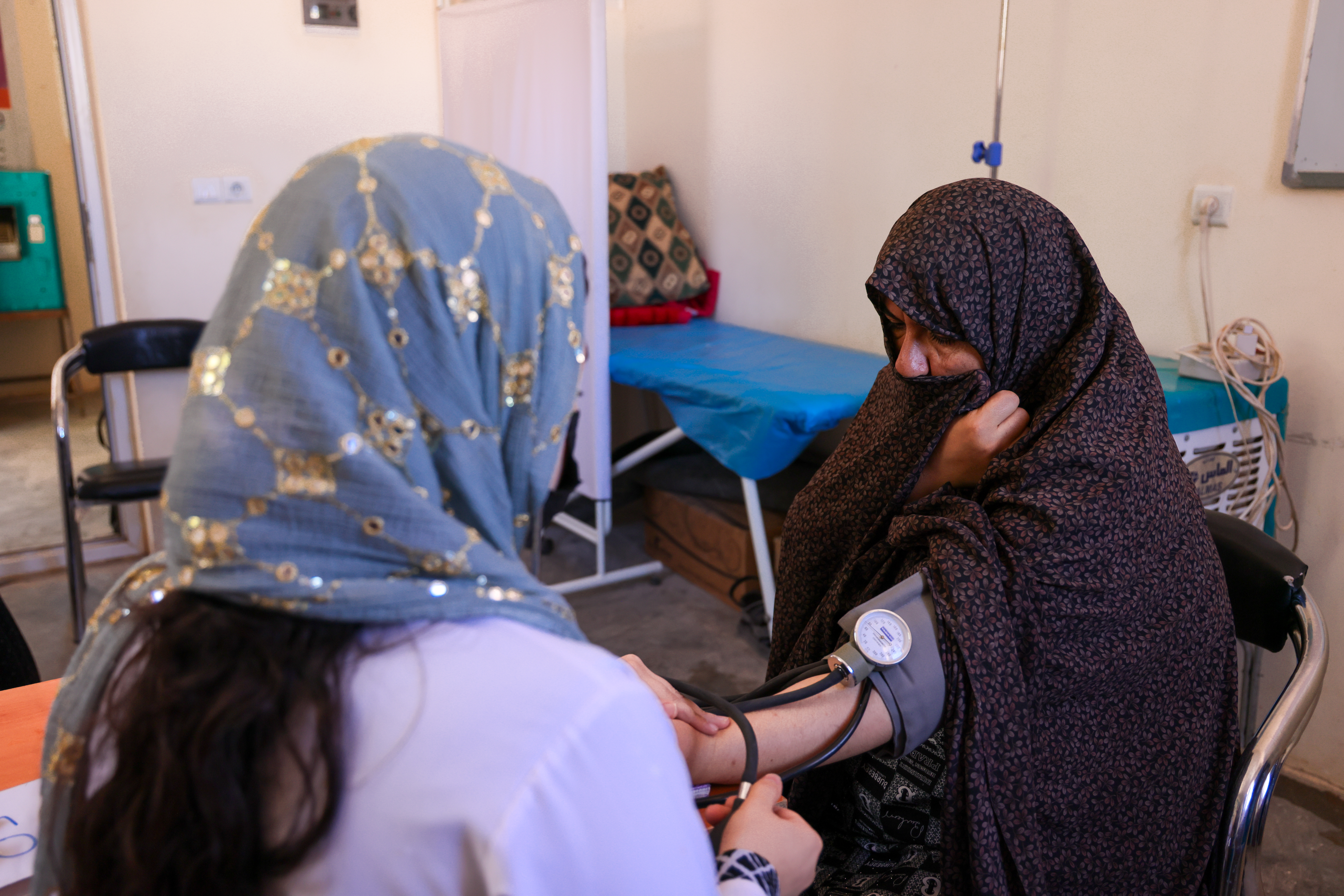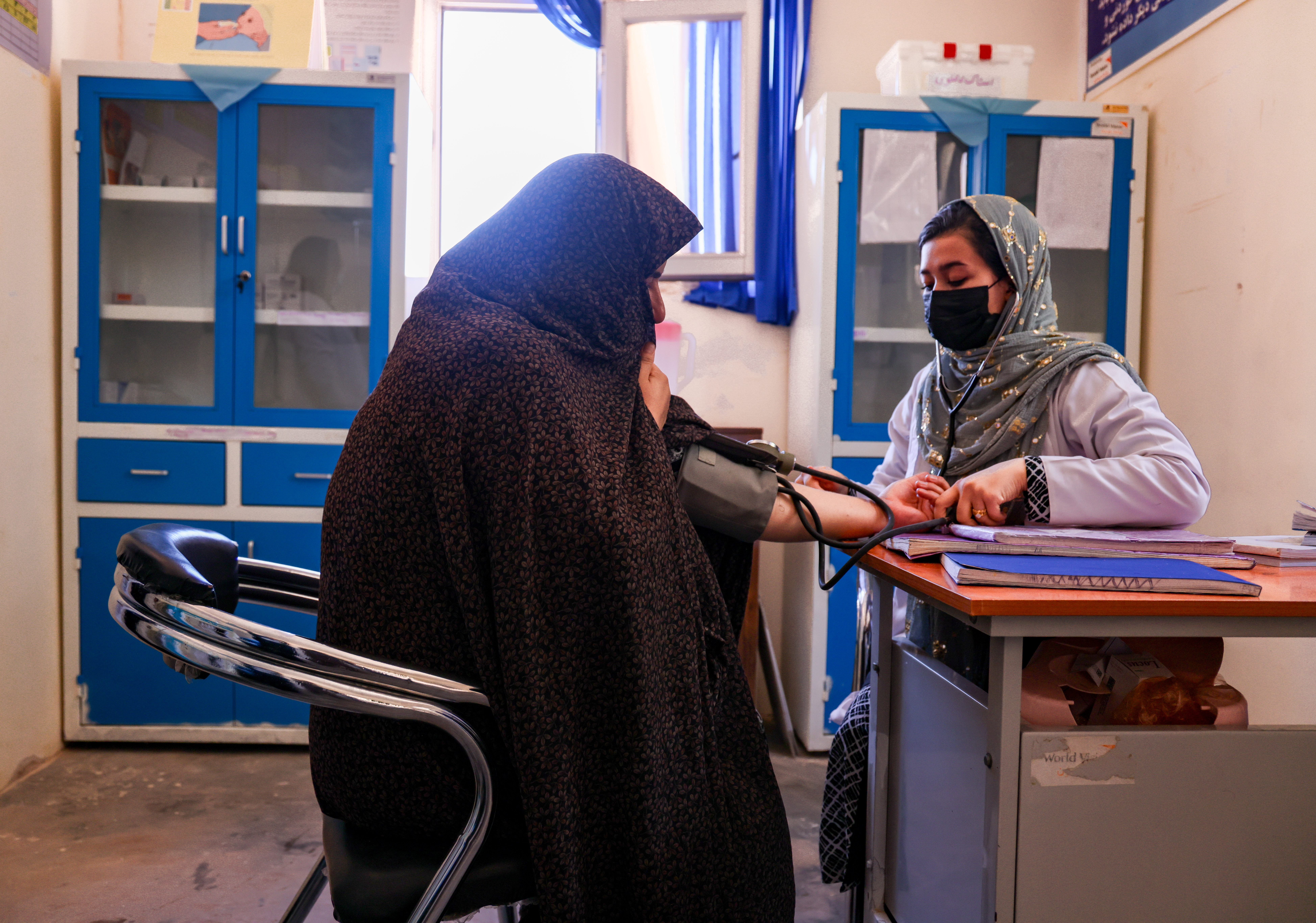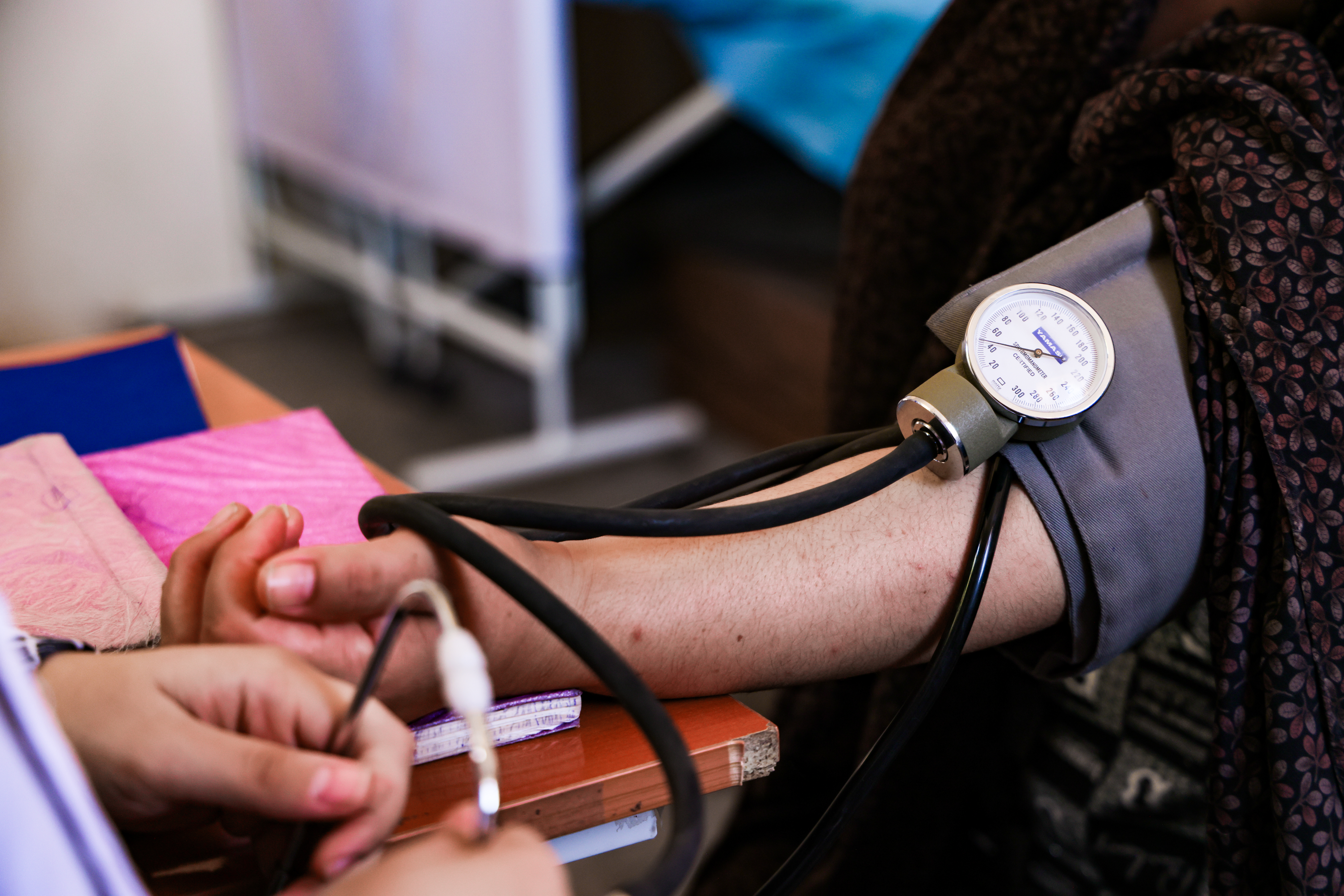Family Health Houses: A Lifeline for Mothers and Newborns

On the outskirts of Herat, where the nearest hospital is more than an hour’s walk away, a modest Family Health House (FHH) stands as the only beacon of hope for villagers. For 32-year-old Hadia, this small clinic is not just a building—it's a lifeline.
“I’m pregnant, and I came here today for support. Women, especially in our community, benefit the most from this centre,” she says.
Before the FHH was established, women like Hadia endured harrowing journeys to distant hospitals, often while in labour. Many of them never made it in time. For others, childbirth was left in the hands of traditional birth attendants with no formal training—a risk that often costs lives.
“There is a huge difference between delivering with a skilled midwife here and being attended by a local midwife (a traditional birth attendant),” Hadia says. “These midwives are educated; they provide medicine and essential care—things local women cannot do.”

The clinic in Hadia’s village is staffed by Zahra, a midwife from the same community. Her presence not only ensures safe deliveries, but also provides dignified employment for women close to home.
Here, women receive antenatal and postnatal care, safe delivery, family planning, and outpatient support. These services are helping reduce Afghanistan’s staggering maternal and child mortality rates. Zahra says proudly, “Beyond providing healthcare, women trust us with their problems. If nothing else, we can at least listen to them.”
Even during the devastating earthquakes in October 2023, Zahra, despite being pregnant herself, continued to serve her community. Her courage reflects the impact of these Family Health Houses.
“It’s the happiest moment for me when a mother leaves this clinic healthy and with her baby in her arms,” Zahra shares. “I feel proud every time I help bring a safe birth into the world.”

Hadia remembers the struggles before the centre opened: “Children and women’s lives were at risk because we didn’t have a clinic nearby. Now, with this centre, we have health support within our village.”
But this progress is fragile. Afghanistan’s maternal mortality rate—638 deaths per 100,000 births—is one of the highest in the world, worsened by a shortage of nearly 18,000 midwives. Funding cuts have already closed over 420 health facilities, leaving three million people without care. Recent reductions include a USD 562 million cut in international aid and a 40% decrease in World Food Programme support.
Despite these challenges, FHHs have proven their worth. In some villages, maternal deaths have dropped to zero since their establishment. With sustained support, these centres could save countless more lives while empowering Afghan women through healthcare and employment.
The need is urgent. Donor support can ensure that no mother has to walk an hour in labour again. Together, we can keep the doors of these life-saving clinics open.
